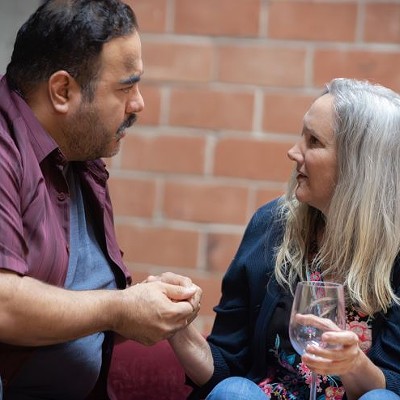Support Us
Houston's independent source of
local news and culture
account
- Welcome,
Insider - Login
- My Account
- My Newsletters
- Contribute
- Contact Us
- Sign out
[
{
"name": "Related Stories / Support Us Combo",
"component": "11591218",
"insertPoint": "4",
"requiredCountToDisplay": "4"
},{
"name": "Air - Billboard - Inline Content",
"component": "11591214",
"insertPoint": "2/3",
"requiredCountToDisplay": "7"
},{
"name": "R1 - Beta - Mobile Only",
"component": "12287027",
"insertPoint": "8",
"requiredCountToDisplay": "8"
},{
"name": "Air - MediumRectangle - Inline Content - Mobile Display Size 2",
"component": "11591215",
"insertPoint": "12",
"requiredCountToDisplay": "12"
},{
"name": "Air - MediumRectangle - Inline Content - Mobile Display Size 2",
"component": "11591215",
"insertPoint": "4th",
"startingPoint": "16",
"requiredCountToDisplay": "12"
}
,{
"name": "RevContent - In Article",
"component": "12527128",
"insertPoint": "3/5",
"requiredCountToDisplay": "5"
}
]
As the calendar reflects 2016, I’m vaguely aware of an anniversary. Or maybe a birth. Either way, I’m reminded my new found atheism is about a year old. Surprising, only because I never thought I’d ever claim to be an atheist. Nor would anyone who has known me for any length of my adulthood. At this point, atheism is probably something of my identity, too. Just as much as I once claimed to be a devout, Bible-believing fundamental evangelical Christian.
Yes, that kind of Christian. A supporter of foreign missionaries, a Women’s Ministry Leader, a Vacation Bible School veteran many times over, Evangelism team leader, Homeless Ministry, Youth and Adult Sunday School Leader, Prayer Volunteer, Food Pantry, a steward like no other.
A faithful above and beyond tither— I could clock volunteer hours in nearly every corner of the ministry world. There was nothing I’d turn down if given the opportunity—not unusual when you believe assignments are divinely sent.
Yet, my atheism was not something that happened overnight. The process that destroyed my faith, was gradual. Much like the melting of a glacier, slowly eroding with each new doubt. First, like tiny fissures, then complete breaks—fracturing every belief I had, evaporating under the heat of my scrutiny.
I was something of upstart. Despite being from a mostly atheistic home life, I had found evangelicalism from a friend right after a horrendous break-up in college. The friend was a former guitarist in a punk rock band, someone who I admired and in whom I had witnessed an enormous change in character as a result of his conversion—shunning his old punk rock ways for a suit, tie and a Bible.
After attending church few weeks, I joined a Ladies’ Bible Study group in a sleepy town south of Houston, started reading the Bible and became saved. And, that miraculous change of character I saw in my punk rock buddy happened in me too. I would soon be mentoring young women toward the paths of righteousness.
And a week ago I found myself having brunch with a woman I discipled in her college years. Two years passed since we last connected, our lives had taken those meandering paths that led us to different towns, different circumstances, or so I thought.
We are both products of the non-denominational mega-church craze. The kind littered across the Bible Belt of Texas with good-looking greeters and smiling parishioners buzzed on free coffee and the promise of eternal life. The all-encompassing fundamental Bible-based conservative collective of the American right-wing. She, a beautiful and intelligent young woman who I had actively mentored and introduced to the church, and me, 20 years her senior, her close spiritual adviser.
Over espresso and fresh fruit, I listened to audible anger tremble in her voice as she unraveled a tale of striking similarity to my own—one I had yet to share with her: shunned from the church due to divorce. Her story mirrored my own almost identically: after turmoil, verbal abuse and unmistakable signs of infidelity in her marriage—the church’s response to her divorce request was non-negotiable: God hates divorce and we will not support you.
It’s a common practice that deserves reckoning. The evangelical church is failing women on a grand scale. From its shameful views on female sexuality, limited and confining gender roles to its colossal neglect in providing a solid education to its young girls, the church remains focused on the past for answers—a past thousands of years expired and irrelevant.
American Evangelical Fundamentalism is outdated. It has simply failed to keep up with the times. God may be the same yesterday, today and forever but humans simply are not.
Divorce, to the modern church is a reminder of one of its many failures to correct the secular culture to which they disagree. Unable to stop divorce — what they see as the greatest threat to a Godly society — that failure finds blame in the women who leave their marriages. God doesn’t hate divorce, the church does.
Counseled on how to properly conduct my behavior post-divorce, my Bible study leader told me in confidence—with disgust at the edge of his voice and a wagging a finger—“Don’t become one of those bitter women.” A statement that echoed in my head for far too long, its sentiment stung me with the discomfort of blame. As if my feelings made everyone else uncomfortable, no one was willing to talk about how the promises of the Bible failed to manifest into reality.
Because my feelings spoke to a slight—a slight by God himself. It spoke against the common belief the church actively teaches women: God brings us the perfect partner at the perfect time and that partner would take care of me and my children until death. Further, divorce nullified another popular teaching: How God’s perfect plan for me would bring fortune and not calamity. More than anything, it spoke against the ever-present idea that I was a daughter of the King, and he would protect me like a loving father.
Funny, God’s plan didn’t feel perfect. As a parent, I would never allow my daughter to suffer such humiliation and misery especially if I had the omnipotent power to remove it. It is insulting to justify a bad marriage as “spiritual growth” or “divine testing” especially when children are suffering. Calling out these inconsistencies to church leadership didn’t make me popular, it made me a target. To audaciously disagree with the Bible, even in the face of mounting factual evidence was inexcusable blasphemy….the kind that fielded phone calls from church leadership disguised as prayer requests.
Women are taught over and over again to model their life, parenting and behavior in the same manner God parents us. In that regard, I drew the line. While my ex enjoyed a life without consequence with his new girlfriend, I found myself counting change for groceries and asking the electricity company for grace. Is this God’s favor? If it is, I don’t want it.
It’s a damaging philosophy. Marriage is sold to female parishioners as the highest pinnacle of sacrifice and worship for a woman. There are few roles outside of marriage, find yourself outside of wedded bliss and be cast into a divorce recovery group or worse, no place at all. My own church placed me with the widows at 26 years old.
I had many problems with the Bible but there were also moments of beautiful, poignant prose exposing the very heights and depths of the human condition. For someone who devours literature, the Bible became my bread of life. But that beauty failed to translate into reality of the modern fundamental church. Instead, I found it riddled with guilt, condemnation and exclusionary practices. Our church membership was no accurate reflection of society; it was a haven of group think and patriarchy.
The majority of the members came from married families filled with home-schooled stair-stepped children well versed in Bible memorization and prepared for ministry. We only claimed a handful of divorced people, no minorities and only one elder lesbian couple raising a grandchild who were actively counseled to abstain from homosexual sin.
So many parishioners failed to find issue with the church’s refusal to connect to a “sinner’s” basic humanity. To suspend judgment and love one another was seemingly impossible. There remained a staunch refusal to separate humanitarian issues from political ones, I watched the church make itself inconsequential to our culture by refusing to follow that deity they held in such regard: No one was willing to lay down their own life for people whom they despised as Jesus did.
There is an inauthenticity in the recited popular phrasing of so many aphorisms dispersed in our common church language. Like the cliché, “I’m too blessed to be stressed” a phrase which in its subtext denies our right to disagree. Or “God never fails me, but I fail Him daily” to be angry at God was akin to devil-worship. Or, like Bishop Jakes' tweets "God's going to put you on somebody's mind who's in a position to restore what you lost!" The ever-present pandering to the deep desires of women were remiss and dishonest. We carelessly told ourselves these half-truths in conversation during Women's Bible Study unwilling to acknowledge the damage it created.
It was more than I could tell myself, more than I could tell my children. Unable to reconcile my conscience against the church, I left, never to return.
If the church is to remain, it must address its treatment of women. To do so, would require essential compromise: Allow women their rightful place in church leadership, educate its daughters without excuse and acknowledge the Bible is at best, an interesting and wholly controversial artifact.
Claiming to care for people out of some kind of evangelical compulsion—a commandment that ultimately condemns—is not love. We love because we chose to love, not because we are told to do so. Connecting through our common humanity and responding in love is what will ultimately save us all—not religion.
Accuse me of dancing with Tituba if you must, but understand I never thought in all of my days of ministry and teaching that I would end up at the curb of the church parking lot looking back at the steeple and divorce myself from a God to whom I pledged my soul. And, while my heart breaks—no shatters—over being churchless, my heart mends over the fact I know I am not amoral.
Whatever goodness and virtue I sought in the church has found itself in the actions I create through loving relationships. That will never include disciplining young women toward false promises again. If that’s all I ever impart to humanity in my short life, I am satisfied.
KEEP THE HOUSTON PRESS FREE...
Since we started the Houston Press, it has been defined as the free, independent voice of Houston, and we'd like to keep it that way. With local media under siege, it's more important than ever for us to rally support behind funding our local journalism. You can help by participating in our "I Support" program, allowing us to keep offering readers access to our incisive coverage of local news, food and culture with no paywalls.
Trending Arts & Culture
- The 10 Best And Most Controversial Hustler Magazine Covers Ever (NSFW)
- Fallout Successfully Makes the Transition From Video Game to Streaming Show
- Whose Story is It in The Father at 4th Wall Theatre Co.
-
Sponsored Content From: [%sponsoredBy%]
[%title%]

Don't Miss Out
SIGN UP for the latest
arts & culture
news, free stuff and more!
Become a member to support the independent voice of Houston
and help keep the future of the Houston Press FREE
Use of this website constitutes acceptance of our
terms of use,
our cookies policy, and our
privacy policy
The Houston Press may earn a portion of sales from products & services purchased through links on our site from our
affiliate partners.
©2024
Houston Press, LP. All rights reserved.





